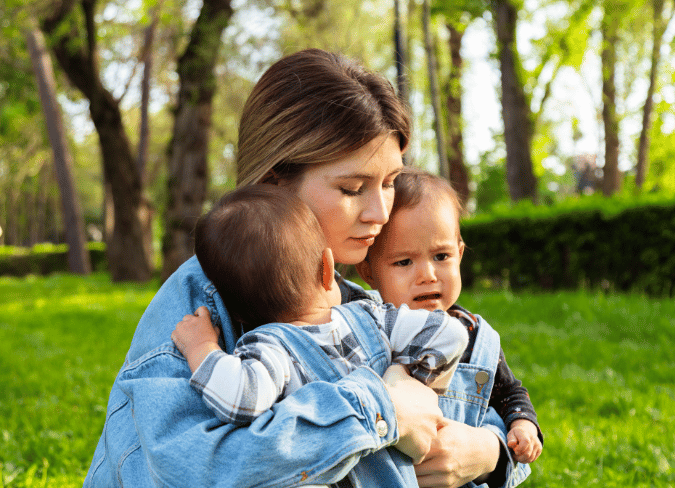Recognizing and Coping with The Impacts of One's Own Past Trauma in Parenting
Many parents report reliving moments of their own childhood after becoming a parent. While for some this can be an informational, pleasant journey, for those with a history of trauma, it can reignite old wounds.
DUYGU BALAN, LPCC • JUN 28TH, 2023

Preventing trauma from being passed from generation to generation comes from addressing it with intentionality and honesty. Avoidance can be an effective survival mechanism during traumatic events, although untreated trauma can dictate our lives and get in the way of establishing secure relationships.
Trauma responses such as hypervigilance and reactivity, are our brain’s way of protecting us, however they can generalize into misinterpreting nonthreatening events as threatening.
Many parents report reliving moments of their own childhood after becoming a parent. While for some this can be an informational, pleasant journey, for those with a history of trauma, it can reignite old wounds. For example, sudden movements of small children, tantrums, yelling, can be triggering and lead to emotional dysregulation, and even re-traumatization.
In these moments it is important to recognize the reactions we are having and learn to soothe ourselves. Talking with children in a calm, matter of fact way will help them understand that we need to take care of our own needs, in order to take care of theirs.
As parents we must remember that we are larger in size and may come across as intimidating. I recommend getting to the child’s eye level to facilitate a non-threatening style of communication, and using ‘I’ statements, such as ‘I feel overwhelmed,’ rather than ‘You’ statements, ‘You are too loud.’ This will model talking about emotions while preventing the internalization of guilt or shame.
Once a safe environment is established and the stage is set for open communication, we can begin to explore other outward manifestations and symptoms of our trauma. As the journey of healing will take time, it is critical to remember that as parents, it is our adult responsibility to heal ourselves and break the cycle of trauma. Asking for support from our social networks, seeking resources from our communities, and if necessary, seeking clinical care is invaluable.
Author and psychotherapist specializing in intergenerational trauma, Duygu Balan, LPCC developed her expertise in intergenerational trauma while working as a clinical counselor in New York City treating patients on society's margins. A licensed psychotherapist, she is the co-author of Re-Write: A Trauma Workbook of Creative Writing and Recovery in Our New Normal and a contributor to the best-selling medical textbook, Big Book of Emergency Department Psychiatry: A Guide to Patient Centered Operational Improvement. Born in Germany and raised in Istanbul, Duygu's upbringing provides her with a fresh perspective on how to navigate tension between cultures; adverse childhood experiences; and attachment wounding through hope and resilience. She is based in the San Francisco Bay Area.